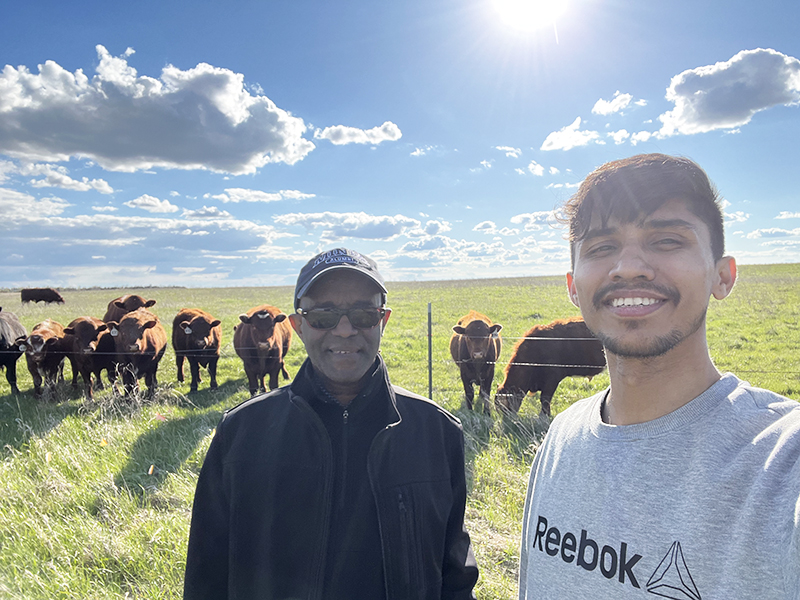Mines Secures $1 Million DOE Grant to Build Climate Resilience Center with Tribal Communities and Stakeholders

Article by: Michelle Pawelski of South Dakota Mines.
South Dakota Mines is one of 10 institutions awarded funding from the Department of Energy (DOE) to help vulnerable communities respond to the impacts of extreme weather events. The $1 million grant will support a climate resilience center (CRC) focused on strengthening adaptive capacity in tribal communities along the Missouri River Basin.
The project, led by Mengistu Geza, Ph.D., Mines associate professor in civil and environmental engineering, will develop tools to translate complex climate projections into practical, site-specific insights, empowering communities to assess vulnerabilities to extreme weather and plan effective mitigation strategies. The focus is creating user-friendly decision-making tools by combining advanced climate data with cutting-edge hydrologic models and machine learning algorithms, empowering informed water resource management amid changing climate conditions.
Although extensive climate data and models exist, local communities and decision-makers often lack access to localized data and practical tools needed to translate climate projections into actionable strategies.
The three-year DOE project aims to change that.
“We are working to develop tools that are accessible to local users,” said Geza.
Mines professors Drs. Bill Capehart, Venkataramana Gadhamshetty, Scott Kenner and Mary Witlacil are also involved. Aside from Mines, the initiative includes Kynser Wahwahsuck and Doug Crow Ghost from the Great Plains Tribal Water Alliance (GPTWA) and the Standing Rock Sioux Tribe (SRST), Drs. Karen Ryberg and Fleford Redoloza from the U.S. Geological Survey (USGS), and Drs. Teklu Tesfa and Samson Hagos from the Pacific Northwest National Laboratory (PNNL). Dr. Nick Klein from Oglala Lakota College along with GPTWA and SRST contributed to identifying water resource challenges.
“This project really needs an interdisciplinary team,” Geza said. “We are bringing together experts from various fields.”
The research will focus on analyzing the impacts of extreme weather events like drought and flooding on Tribal communities. The team will use Standing Rock Reservation for its case study; however, tools developed will be adaptable across other locations along the Missouri River Basin, Geza said.
This DOE grant adds to the series of funding the team has received, including recent projects supported by the NSF and USGS, he added.
Mines’ students will also play a big part in the research. “We started collecting climate data and building models, but the bulk of the work will be in the spring when we get more students involved,” Geza said.
The CRCs will build regional and local capacity by engaging communities and stakeholders to turn research into actionable science for climate resilience and to identify future research opportunities.
“These efforts aim to enhance understanding of the impacts of climate change and prepare communities, especially the most vulnerable, along the Missouri River for future challenges,” Geza said.
 National Science Foundation RII Track-1 Project:Expanding Research, Education and Innovation in South Dakota
National Science Foundation RII Track-1 Project:Expanding Research, Education and Innovation in South Dakota